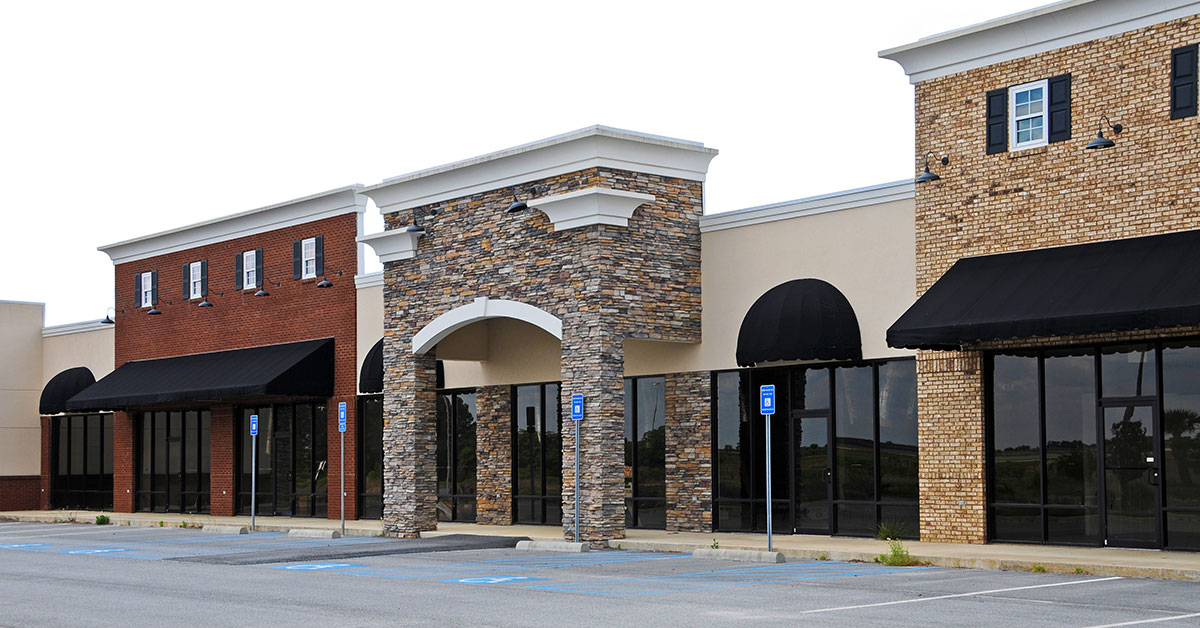
Is Home Ownership Right for You?
Curious about diving into the world of homeownership given the current housing market? You're not alone. In this guide, we're going to cut through the noise and get straight to the essentials. We'll talk about your budget, financial goals, and whether owning a home aligns with your long-term plans. We'll break down the pros and cons—like building equity and dealing with unexpected costs. Plus, we'll touch on renting, because let's face it, it's not always a one-size-fits-all decision. To provide a well-rounded view, we'll discuss market conditions and explain important concepts like the price-to-rent ratio. And when you're ready to make your move (pun intended), rest assured that our dedicated Home Mortgage Advisors at CFCU are here to support you every step of the way.
Ready to embark on your homebuying journey? Let's explore the key factors you should consider before making this important decision.
Evaluate Your Budget and Financial Goals
Financial Readiness
Thinking about owning a home? Let's start by getting your finances in order. Calculate your total monthly income, factoring in everything. Check your savings, including emergency funds. Scrutinize outstanding debts and give your credit score a good look—it plays a significant role. For a real insight into your financial capacity, figure out your debt-to-income (DTI) ratio.
Now, it's not just about the mortgage. Factor in property taxes, insurance, utilities, and maintenance. Tailor your budget to your lifestyle, and be sure to leave room for surprises. This step-by-step examination of your finances isn't just a checklist; it's your roadmap to a well-informed homeownership decision
Long-Term Financial Goals
Owning a home is an investment in your future. Ask yourself: does it align with your long-term financial goals? Think wealth accumulation, stability, and long-term security. Consider how homeownership fits into your broader financial plan.
Look ahead. What's the long-term impact? Think about equity growth, property appreciation, and how homeownership adds to your overall financial well-being and retirement plans. It's not just about today; it's about securing a prosperous financial future.
Ready to take this next step? Your finances hold the key to a successful homeownership journey.
Pros & Cons of Homeownership
Pros
- Building Equity
Owning a home isn't just about having a place to call your own—it's a pathway to building wealth. As property values gradually increase over time, so does your equity. Equity, in essence, is your ownership stake in the home; it represents the paid off portion of your home (the home’s value minus what you still owe on the mortgage). It’s an asset that can be leveraged for various financial opportunities. With each mortgage payment and property value appreciation, your equity grows. This newfound wealth can be a game-changer, opening doors to funding education, securing your retirement, and achieving your financial goals. - Stability and Security
Homeownership goes beyond just having a roof over your head; it provides a profound sense of stability. Your home is your permanent sanctuary, offering a consistent living arrangement that fosters a connection to the community. This connection not only provides emotional security but also bolsters your financial stability. With a fixed mortgage rate and the potential for property value appreciation, homeownership becomes a cornerstone for both emotional well-being and financial security. - Personalization and Control
Picture this: your space, your rules. Homeownership comes with the freedom to personalize your living space according to your tastes and preferences. This ability to customize your environment enhances the sense of ownership and comfort. Your home truly becomes an expression of who you are, adding an extra layer of satisfaction to the joy of homeownership.
Cons
- Financial Responsibilities
While homeownership offers financial benefits, it also comes with its share of responsibilities. Monthly mortgage payments, property taxes, and homeowner’s insurance are ongoing commitments that require careful budgeting to ensure financial stability. Being aware of these responsibilities is crucial to maintaining the perks of homeownership without encountering financial strain. - Lack of Flexibility
The permanence of homeownership can limit your flexibility, particularly when it comes to relocation. If job changes or other reasons necessitate a move, selling a home may not happen overnight. The process takes time, and market conditions can influence its speed. It's a trade-off between the stability of owning a home and the flexibility to relocate swiftly. - Market Conditions
Homeownership isn't immune to economic factors. Recessions or fluctuations in the real estate market can impact property values, affecting your home's overall financial outlook. Being mindful of market conditions allows homeowners to make informed decisions and navigate potential challenges in maintaining the value of their investment.
Is Renting a Better Option?
Advantages of Renting
As you navigate the decision between renting and homeownership, consider the distinct advantages that renting brings to the table.
Renting provides unparalleled flexibility, allowing individuals to adapt to changing life circumstances effortlessly. Whether you're pursuing career opportunities in different cities or exploring various neighborhoods, tenants can easily relocate without the constraints of selling a property.
Moreover, renting significantly reduces upfront financial burdens compared to homeownership. Tenants avoid hefty down payments and ongoing maintenance costs, as landlords take on major repair responsibilities. This financial efficiency allows renters to allocate savings for other investments or personal goals.
Considerations for Renting
Renting comes with its financial nuances. While it spares you from property-related expenses, it's crucial to consider potential rent increases. Additionally, think about the opportunity cost of not building equity over time. Consider alternative investments to ensure your choice aligns with your overall financial goals. Renting provides flexibility, but evaluating these factors is key to making a sound financial decision.
Price-to-Rent Ratio
Ever heard of the price-to-rent ratio? It's like the financial GPS for the housing market. If the ratio is low, it's a green light for buying, signaling long-term investment potential. A higher ratio, on the other hand, leans towards renting, emphasizing financial flexibility.
What's behind this ratio? Think local market conditions, interest rates, and property appreciation. In markets where property values outpace rental costs, a higher ratio may favor renting, ideal for short-term flexibility. Conversely, a lower ratio in homeowner-friendly markets points towards buying, hinting at potential long-term equity growth. As you navigate the housing landscape, the price-to-rent ratio becomes a crucial guide, adding a serious edge to your decision-making.
Costs Associated with Owning a Home
Mortgage Payments
Monthly mortgage payments are an essential part of homeownership, as they allow individuals to gradually repay their home loans. These payments are not only dedicated to reducing the loan balance but also encompass both principal and interest. The principal portion goes towards paying off the actual amount borrowed, while the interest covers the cost of borrowing the money.
It's worth noting that mortgage options can differ in terms of interest rates and terms. Fixed-rate mortgages provide stability by maintaining consistent monthly payments throughout the loan term, offering peace of mind to homeowners. On the other hand, adjustable-rate mortgages may initially present lower interest rates, but they come with the possibility of fluctuating rates over time. Homebuyers should carefully consider these options and choose one that aligns with their financial goals and risk tolerance.
Property Taxes and Insurance
Budgeting for property taxes and homeowner's insurance is crucial for financial preparedness. Property taxes contribute to local community services, while homeowner's insurance protects against property damage and liability. Both property taxes and homeowner’s insurance can fluctuate over time causing changes to your monthly mortgage payment. These are important expenses to keep in mind when considering your budget.
Maintenance and Unexpected Expenses
Regular maintenance, including tasks like roof inspections, HVAC servicing, and plumbing checks, is essential for preserving the value of your home. Planning and budgeting for routine expenses help prevent larger issues down the line. Additionally, having an emergency fund for unexpected repairs ensures prompt addressing of issues without financial strain.

Condo & HOA Fees
Understanding condominium and homeowners' association (HOA) fees is important as they cover shared expenses for communal amenities and services. It's essential to review HOA rules and fee structures before purchasing a property to ensure alignment with lifestyle preferences and financial capabilities.
Yard Maintenance
Yard maintenance expenses encompass landscaping, lawn care, and other outdoor upkeep. Considering these costs when budgeting for overall home maintenance is necessary to keep the property well-maintained.
Utilities
Estimating monthly utility costs for water, electricity, gas, and sewage helps homeowners set realistic budgets and monitor energy consumption. It's important to note that homeowner utility expenses are typically higher than rental utilities, so proactive management is beneficial.
Long-term Benefits of Homeownership
Equity is the part of your home's value that truly belongs to you. It grows over time through mortgage payments and property value appreciation. As your mortgage shrinks and your property's value rises, equity accumulates, transforming into a tangible asset and a potential source of financial growth. Looking down the road, this equity isn't just a number; it becomes a crucial player in long-term financial security and retirement planning. During retirement, tapping into this accumulated equity enhances financial stability, removing the burden of monthly mortgage payments.
Now, let's talk about property value appreciation—the real estate magic. It's the uptick in your home's market value over time. This isn't just good news for the neighborhood; it's a potential game-changer for you. The increased property value opens doors for leveraging your asset. Whether through refinancing to access equity for major expenses or selling at a higher value, cashing in on your investment can fund education, home improvements, or even a move to a more valuable property or downsizing, freeing up additional funds for other financial goals.
Other Considerations
Embarking on the journey of homeownership requires a strategic mindset that extends beyond the initial allure of a place to call your own. One crucial aspect to consider is the impact of economic downturns on property values. Be prepared for potential decreased market value during challenging economic periods. Stay informed about market trends and cycles so you can choose the right time to buy or sell.
However, homeownership involves more than just market dynamics. It's vital to evaluate the stability of your personal and professional life. Consider how homeownership aligns with your long-term goals, including family plans, career aspirations, and lifestyle preferences. Understanding the responsibilities that come with owning a home, such as maintenance, repairs, and financial commitments beyond the mortgage, is also crucial. By maintaining a balanced perspective and being prepared for both the positive and challenging aspects of homeownership, you can embark on this journey with confidence, knowing that it anchors you in your long-term path.
Your Homebuying Journey Starts Here
Whether you're looking to buy your first home, your next home, or you just want to refinance the one you've got, Community First Credit Union has the mortgage loan option for you. Get started on your homebuying journey today by giving our dedicated Home Mortgage Advisors a call at 904.574.5885.
Learn More About the Home Buying Process
- Qualifying as a First Time Homebuyer in Florida
- How to Qualify for a Florida Mortgage
- How to Avoid Closing Costs
- Can I Get a Mortgage if Self-Employed?
- What Does No Closing Costs Mean?
- 5 Common Mistakes of Home Buyers









